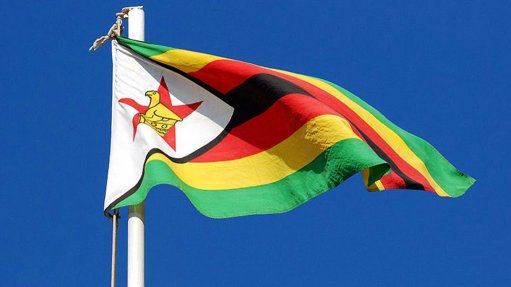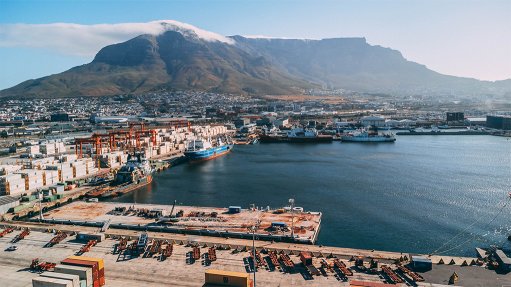A monarch’s costly whim
It is safe to say that many readers of this column now know that what used to be the Kingdom of Swaziland is now the Kingdom of eSwatini, which means ‘the land of the Swati people’.
The name change, announced by King Mswati III last month, during celebrations to mark 50 years of independence from the British, was the result of both symbolic and practical considerations. Swaziland comprises the English translation of Swati and the English suffix ‘land’, and has reportedly been a source of discomfort for some in the tiny kingdom of about 1.5-million people that is wedged been South Africa and Mozambique. The practical motivation, according to Mswati, who is Africa’s last absolute monarch and has a reputation as a tin-pot dictator who brooks no political opposition, was to avoid confusion with the almost similar-sounding Switzerland.
The reasons for the name change, as explained by Mswati, may be cogent, but the mind boggles as to why it took the king so long to make up his mind – he has been on the throne since his 1986 coronation as a baby-faced 18-year-old. His father and predecessor, Sobhuza II, had had no problem with the name, given to the country by its colonial masters, and did not go about changing it when the colonisers packed their bags in 1968.
Did Mswati consider the cost implications of his whimsical move? Surely, the country will need to have new coins minted and to print new bank notes, government stationery and passports, besides others. Ditto the country’s Constitution, Acts of Parliament and postage stamps. The police force and the army will need to be renamed, and that means a new name board at every police station and army barracks in the country, new uniforms, new stationery, new vehicle liveries – the list is endless.
What’s more, new vehicle registration plates will have to be introduced, as the current ones include letters from the name Swaziland. Ditto Internet domain names.
I am sure that, in due course, economists will be able to tell us what the true cost of Mswati’s decision will be.
To illustrate how costly a country name change can be, between 2012 and 2016, the Czech Republic reportedly spent an estimated R500-million on a tourism branding campaign to market itself – months before changing its English name to Czechia.
If the people of Swaziland could live with the country’s colonial-era name for all of 50 years, why has the king suddenly found it to be obnoxious? After all, not every African country assumed a new name on attaining independence. Colonial-era names have endured beyond the transition to democratic rule in many countries on the continent. Cases in point include our own country, where questions around nomenclature did not even arise during the negotiations that consigned the sad chapter of racial oppression to the dustbin of history, although as recently as last year Arts and Culture Minister Nathi Mthethwa was still talking of wanting to lobby the national executive committee of the ruling African National Congress to initiate discussion on an “appropriate” name for the country.
Mauritania, the Gambia, Niger, Mali, Côte d’Ivoire, Burkina Faso, Burundi and Rwanda also chose to retain their names.
Those that changed their names – such as Botswana (Bechuanaland), Ghana (Gold Coast), Lesotho (Basutoland), Mozambique (Portuguese East Africa), Malawi (Nyasaland), Zambia (Northern Rhodesia) and Zimbabwe (Southern Rhodesia and later just Rhodesia) – did so at independence.
I would not have a problem with His Majesty’s decision if there were no issues in the country more deserving of its scant resources. Here is a country that is battling to deal with the world’s highest adult HIV infection rate of 27.2% (according to 2016 estimates) and where economic growth has been sluggish, increasing in real terms by only 1.3% in 2016 and 1% in 2017. Unemployment is officially stated as 28%.
To illustrate how financially embarrassed the country has been in recent years, in 2011, its government had to approach South Africa for a R2.4-billion loan to mitigate a financial crisis. And Mswati sees fit to divert what little money is available to what is essentially a pet project of his?
Comments
Press Office
Announcements
What's On
Subscribe to improve your user experience...
Option 1 (equivalent of R125 a month):
Receive a weekly copy of Creamer Media's Engineering News & Mining Weekly magazine
(print copy for those in South Africa and e-magazine for those outside of South Africa)
Receive daily email newsletters
Access to full search results
Access archive of magazine back copies
Access to Projects in Progress
Access to ONE Research Report of your choice in PDF format
Option 2 (equivalent of R375 a month):
All benefits from Option 1
PLUS
Access to Creamer Media's Research Channel Africa for ALL Research Reports, in PDF format, on various industrial and mining sectors
including Electricity; Water; Energy Transition; Hydrogen; Roads, Rail and Ports; Coal; Gold; Platinum; Battery Metals; etc.
Already a subscriber?
Forgotten your password?
Receive weekly copy of Creamer Media's Engineering News & Mining Weekly magazine (print copy for those in South Africa and e-magazine for those outside of South Africa)
➕
Recieve daily email newsletters
➕
Access to full search results
➕
Access archive of magazine back copies
➕
Access to Projects in Progress
➕
Access to ONE Research Report of your choice in PDF format
RESEARCH CHANNEL AFRICA
R4500 (equivalent of R375 a month)
SUBSCRIBEAll benefits from Option 1
➕
Access to Creamer Media's Research Channel Africa for ALL Research Reports on various industrial and mining sectors, in PDF format, including on:
Electricity
➕
Water
➕
Energy Transition
➕
Hydrogen
➕
Roads, Rail and Ports
➕
Coal
➕
Gold
➕
Platinum
➕
Battery Metals
➕
etc.
Receive all benefits from Option 1 or Option 2 delivered to numerous people at your company
➕
Multiple User names and Passwords for simultaneous log-ins
➕
Intranet integration access to all in your organisation


















